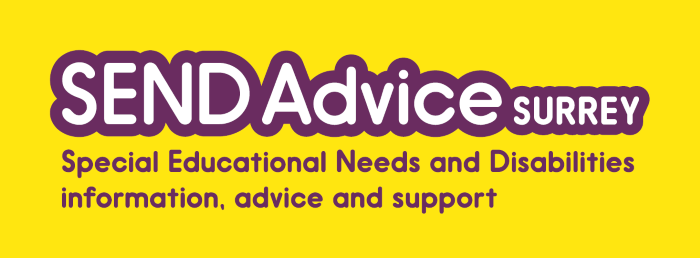Advocacy
About
The Information, Advice and Support Network (IASN) that we are part of uses the following definition of Advocacy:
Advocacy means getting support from another person to help you (parent, child or young person) express your views and wishes and help you understand and exercise your rights.
Special Education Needs and Disabilities Information, Advice and Support (SENDIAS) services do not fulfil the role of statutory advocates or provide legal advocacy as provided by a lawyer.
An advocate can:
- listen to your views and concerns
- help you explore your options and rights (without pressuring you)
- provide information to help you make informed decisions
- help you contact relevant people, or contact them on your behalf
- accompany you and support you in meetings or appointments.
An advocate will not:
- give you their personal opinion
- solve problems and make decisions for you
- make judgements about you. The support of an advocate is often particularly useful in meetings when you might not
- feel confident in expressing yourself.
They can:
- support you to ask all the questions you want to ask
- make sure all the points you want covered are included in the meeting
- explain your options to you without giving their opinion
- help keep you safe during the meeting – for example, if you find the meeting upsetting, your advocate can ask for a break until you feel able to continue.
What are my legal rights to an advocate?
In some situations, you might be legally entitled to get the support of an advocate (Mind.org.uk). This is called 'statutory advocacy'. There are three types of statutory advocates in England and Wales.
Independent Mental Health Advocates (IMHAs)
These are specially trained advocates who can support certain patients under the Mental Health Act 1983 (mind.org.uk). It is advocacy to support people facing decisions such as their treatments, medication or being detained under the Mental Health Act. One to one support from an Advocate with specialist knowledge of the Mental Health Act, either in a hospital or community setting.
Independent Mental Capacity Advocates (IMCAs)
These are specially trained advocates who can support certain people under the Mental Capacity Act 2005 (mind.org.uk). It is advocacy to support people who lack capacity to be involved in important decision about their lives, such as where they live or about serious medical treatment. Advocates have specialist knowledge of the Mental Capacity Act.
Social Care advocates
These can support certain people under the Care Act 2014 (in England) and the Social Services and Wellbeing (Wales) Act (in Wales).
You can find a list of advocacy services in Surrey on the Family Information Directory.
The purpose of this service is to provide high-quality, independent advocacy to enable improved outcomes for: looked after children, children subject to child protection planning and care leavers up to the age of 25; and children and young people with special educational needs and/or disabilities (SEND), who have an Education Health and Care (EHCP) and do not have appropriate representation.
The provider will accept referrals that are in the eligible groups (shown) via the following routes: self-referral; professional referral; and/or family and friends' referral.
Eligible groups include children and young people who are:
- looked after children
- care leavers up to the age of 25
- children subject to child protection planning wishing to make representation as part of this
- over 16 and have special education needs or disabilities (SEND) and/or have an EHC plan
- any age, with an EHCP and English as an additional language; and
- under 16, with an EHCP, without a parent who is capable of advocating on their behalf.
Surrey's independent advocacy service
Reconstruct is commissioned to provide Surrey's Independent Advocacy Service. Reconstruct are a separate service, and are completely independent of the Local Authority. Their role is to support and relay the views and wishes of the child or young person and to ensure their voice is represented.
They are providing the Independent Advocacy Service for:
- Looked after children
- Care leavers up to the age of 25Children subject to child protection planning to make a representation
- Over 16 and have special education needs or disabilities (SEND) and/or have an education health care plan (EHCP)
- Any age, with an EHCP and English as an additional language
- Under 16, with an EHCP, without a parent who is capable of advocating on their behalf
- 16 to 17 homeless young people
